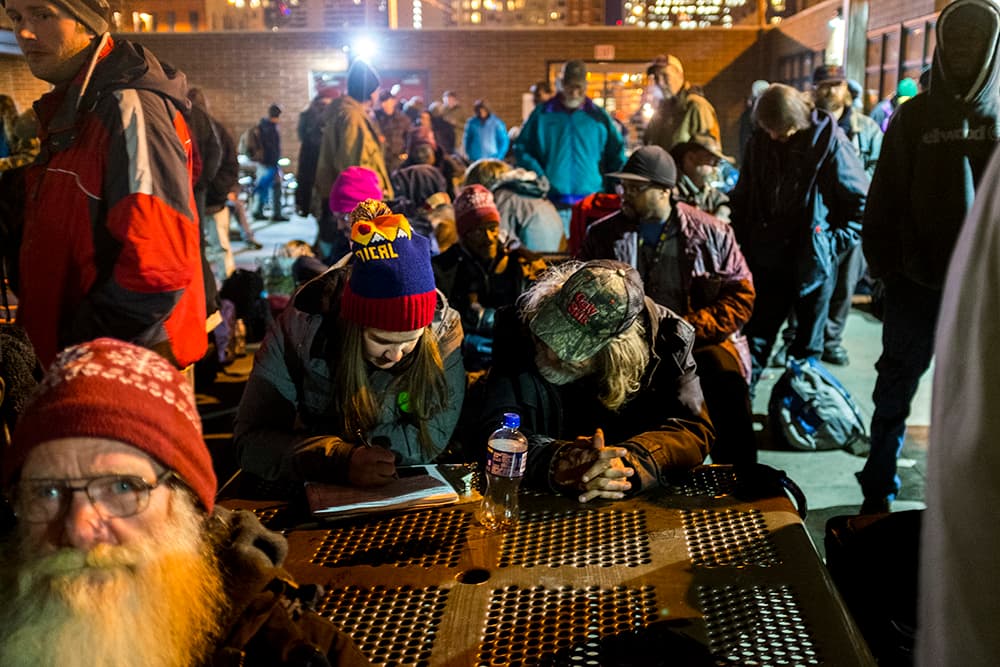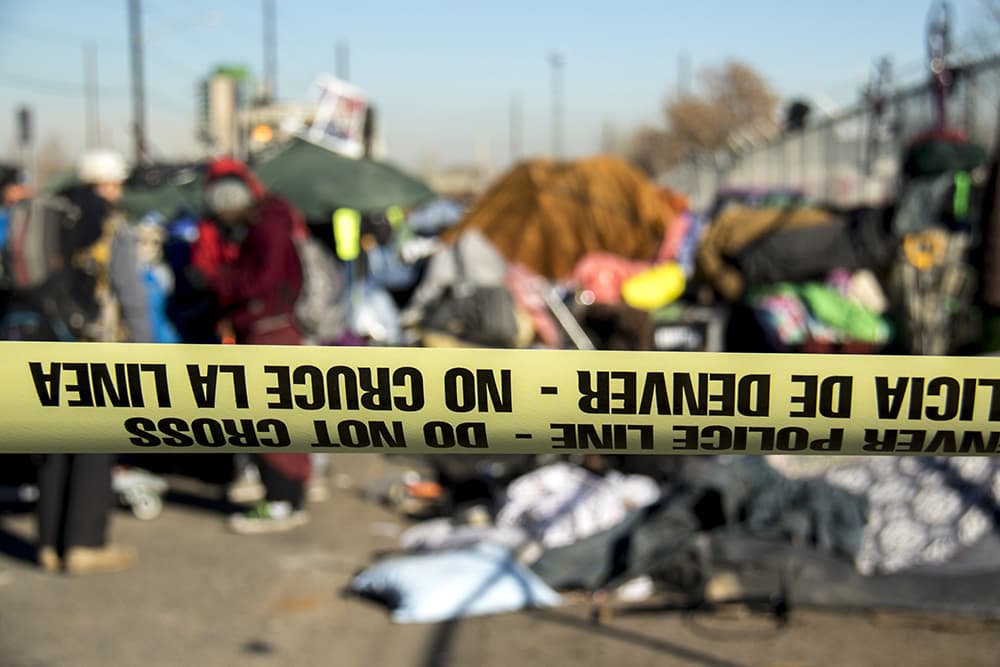City officials acting on complaints from businesses and out of concern because of an impending cold snap asked people to leave a three-block stretch along Arapahoe and Larimer streets where they had been camping.
An advocate for those experiencing homelessness said the result of the Monday morning operation was that people were left without tents and other gear. The National Weather service is predicting rain and snow during the day Tuesday and snow that night with accumulations of one to two inches.
Department of Public Health & Environment spokesman Jeremy Garland said complaints about litter and waste had sparked an investigation, leading to the issuance of a public health notice. Garland said the area was closed to allow Public Works to conduct a clean-up that was largely completed Monday, but could not say when the closure would be lifted. Police participated in the operation and made no arrests, a police spokesman said.
Garland added the weather also influenced the decision to declare the area off limits except for people passing through or conducting business.
"There were a variety of reasons. Part of it, we're going to have a cold spell tomorrow," he said, adding homelessness outreach workers were in touch with people in the area before and during the operation. "One of our goals was to connect people with services and shelters."
Garland said four people died outside during a snowstorm in Denver almost two weeks ago. He said the causes of the deaths had not yet been determined.
Terese Howard, the advocate with Denver Homeless Out Loud, said as many as 300 people in homelessness had gathered in the area that was cleared Monday. After they were asked to move, some came to the nearby Homeless Out Loud office and told her they had had to leave behind belongings they could not carry and did not know where they would spend the night.
"Now people are showing up at our office asking for tents," she said.
Howard said some people find shelters chaotic or have pets or partners to be accommodated.
Shelters are "not a feasible option," she said. "It's not a dignified option. People want homes, not warehousing."
Julie Smith, spokeswoman for Denver's Road Home -- the city agency that coordinates services for people experiencing homelessness -- said that after Monday's operation at least three women with physical limitations were able to find shelter at Samaritan House, a facility for women operated by Catholic Charities. She said outreach was continuing.
Ann Cecchine-Williams, deputy director of the Department of Public Health & Environment, said arrangements can be made to shelter pets, but only after protocols including a police referral are followed. Smith acknowledged couples cannot be accommodated in any of the shelters that contract with the city.
Smith said new shelters have opened since last year and officials hope people who have shunned them in the past would "give shelters another chance."
According to Denver's most recent point-in-time survey, a one-night accounting that provides a conservative estimate of homelessness in the city, more then 3,000 people are without permanent housing. Most of those surveyed were in some form of shelter the night of the survey. Nearly 2,000 shelter beds are available and city recreation centers can be opened and equipped in an emergency to serve more people.

Howard's homeless advocacy group led a petition drive that put a Right to Survive proposal on the May ballot asking Denver voters to overturn the city's camping ban as well as authorize sleeping in vehicles and providing food to the needy in public. Homeless Out Loud also filed suit in 2016 alleging that the taking of property during sweeps of homeless encampments is unconstitutional. The trial prompted by the lawsuit is scheduled to start next March.
In 2012 the Denver City council approved a law banning people from sheltering themselves, even with a blanket, in public. City councilman Albus Brooks, who sponsored the 2012 law, stresses it was coupled with efforts to house the homeless, something he said the Right to Survive initiative lacks.













